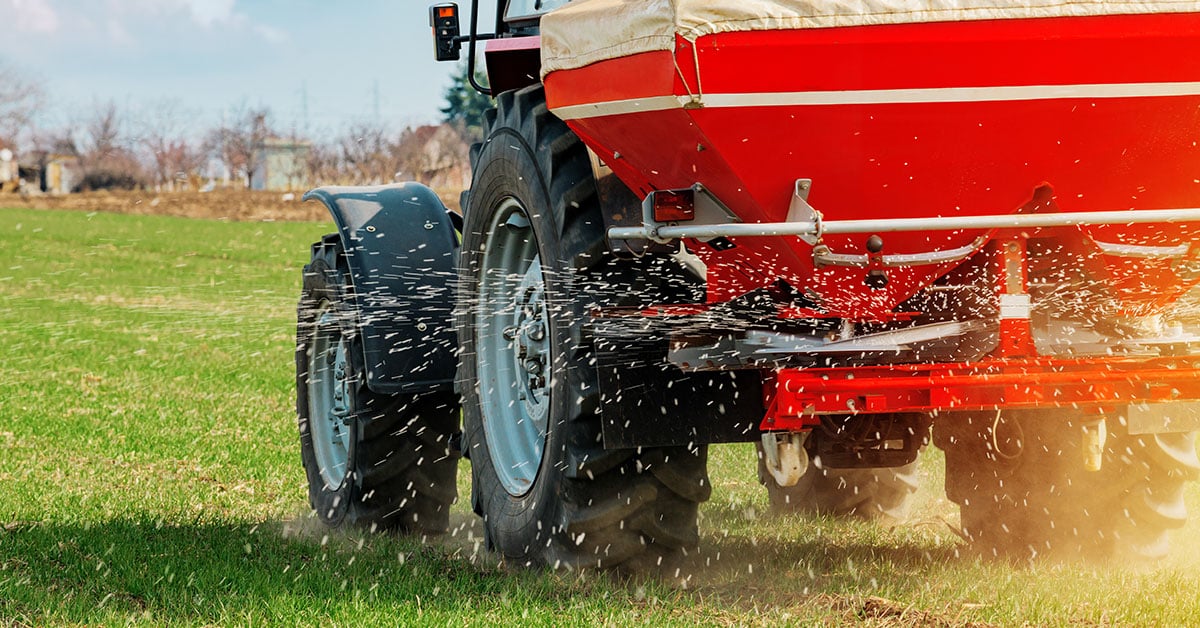Investor News
COLDry - Reducing Urea Use for Greener Agriculture

In an era where sustainable agriculture is not just a goal but a necessity, we were thrilled to recently announce our partnership with ESG Agriculture to develop a groundbreaking lignite-urea soil health product. This innovative solution will reduce the reliance on conventional urea fertilisers, supporting more eco-friendly farming practices.
The Importance of Urea in Agriculture
Urea plays a crucial role in promoting plant growth and is the backbone of synthetic fertilisers used worldwide. Thanks to its high nitrogen content, which is essential for plant development, urea accounts for over half of the global synthetic fertiliser usage.
The Environmental Impact of Urea Production
However, urea production is energy-intensive and heavily dependent on natural gas, leading to substantial CO2 emissions - producing one ton of urea results in approximately 1.8 tons of CO2 emissions. Given the scale of urea production globally, the cumulative environmental impact is considerable.
Introducing Lignite: A Natural Organic Solution
Our solution involves the innovative combination of lignite with urea. Lignite, also known as brown coal, is a naturally occurring material rich in organic substances. These substances are known for their soil conditioning properties, enhancing soil structure, water retention, and nutrient availability. By integrating lignite with urea, we're developing a fertiliser that supports effective plant growth and significantly reduces urea's environmental footprint.
Benefits of the Lignite-Urea Soil Health Product
- Reduced CO2 Emissions: By cutting urea use by 50%, our product dramatically lowers the associated CO2 emissions, contributing to a smaller carbon footprint.
- Improved Soil Health: Lignite enhances soil health by improving its physical and chemical properties. It increases soil organic matter, boosts microbial activity, and enhances nutrient retention.
- Less Nitrogen Runoff: The combined use of lignite and urea results in more efficient nitrogen utilisation, reducing nitrogen runoff into water bodies, which helps prevent water pollution and eutrophication.
- Sustainable Farming Practices: This innovative product aligns with sustainable agriculture practices, promoting long-term soil fertility and reducing dependency on chemical fertilisers.
Development and Future Plans
We are currently in the development phase of the lignite-urea product with ESG Agriculture, with customer field trials scheduled to commence in the coming months. These trials are a critical step ahead of our planned commercial production in 2025, targeting an annual output of 30,000 tonnes. Our unique COLDry process – the world's first and only zero-emission lignite drying system – will enable this commercial production, support our sustainability goals, and enhance our agricultural product's efficiency and environmental performance.
How the Lignite-Urea Product Works
The lignite-urea product leverages lignite's natural properties to enhance urea's efficiency. Lignite acts as a slow-release mechanism that ensures a steady nitrogen supply to plants over time, reducing the overall amount of urea required. Additionally, the improved soil structure and increased microbial activity fostered by lignite enhance plant nutrient absorption, leading to healthier and more resilient crops.
The Path to a Greener Future
Our collaboration with ESG Agriculture underscores our commitment to fostering sustainable farming practices. By developing and promoting the use of the lignite-urea soil health product, we are taking a proactive step towards addressing some of the critical environmental challenges posed by traditional agricultural practices. This initiative supports the global agenda of reducing greenhouse gas emissions and promotes soil health, water conservation, and long-term agricultural productivity.
As we continue to innovate and promote sustainable agricultural practices, we invite stakeholders, farmers, and the broader community to join us in this transformative journey. Together, we can build a more sustainable and resilient agricultural system that meets today's needs and safeguards the environment for future generations.